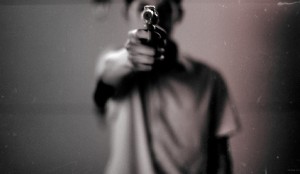What in the name of all that is holy happened in Roanoke, Va.?
An apparently disgruntled former television station employee opened fire on a broadcast journalist interviewing someone and then on the cameraman who was video recording the event.
Then the shooter fled and later turned the gun on himself. His two victims died on the scene; the gunman died later.
The act went viral on social media. I’ve seen a clip of the event. It sickens me to the core.
Alison Parker was 24. Her cameraman was Adam Ward, 27. The man believed to have shot them was Vester Lee Flanagan, 41.
How in the world does one make sense of this?
There’s an element to this story that needs fleshing out. Someone turned in a fax to the station where Parker and Ward worked that declared Flanagan, an African-American, acted out of revenge over the Charleston, S.C., church massacre a few months ago in which a white man killed nine African-Americans. Flanagan’s victims were white.
As the Washington Post reported: “Why did I do it?” stated the fax, which was received shortly before 8:30 a.m. on Wednesday. “Why did I do it? I put down a deposit for a gun on 6/19/15. The Church shooting in Charleston happened on 6/17/15…” The document goes on to state: “What sent me over the top was the church shooting. And my hollow point bullets have the victims’ initials on them.”
It’s not yet been determined if the fax came from Flanagan.
If it did, then we have a serious hate crime on our hands. Authorities cannot prosecute the shooter, given his death.
I hope with all my heart that someone other than Flanagan submitted the document.
However, even if that’s the case, are we now talking about a major ratcheting up of racial tension — yet again?
